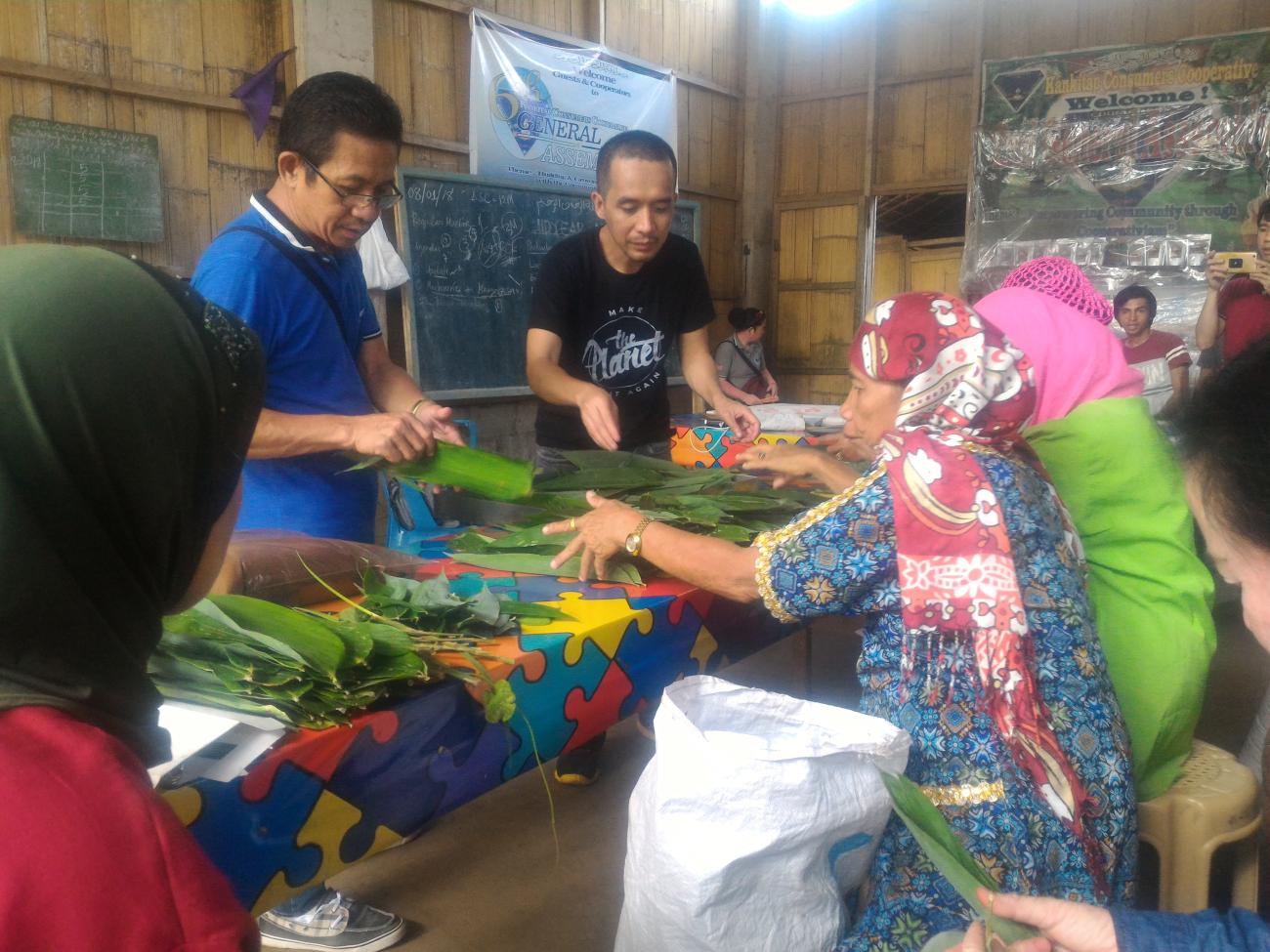For Mark “Sultan” Gersava, a farmer from Sultan Kudarat and a climate activist, helping to stop climate change did not need a grand gesture on a national scale. What he did was help people make one simple change in the way they lived: swapping the ubiquitous plastic straw for one made of bamboo.
Mark has a strong affinity to the bamboo tree. Growing up in a poor family, bamboo shoots had been a reliable source of food for him, his parents, and 11 siblings. He also learned about the many environmental benefits of the “underutilized” bamboo.
“It captures more carbon dioxide than any other plant,” says Mark. “For every hectare, other trees can capture 48 tons, while bamboo trees can capture 62 tons. It also produces 30 percent more oxygen.”
In 2017 and with just P10,000 in capital, Mark started BAMBUHAY, a social enterprise named after the bamboo and “buhay”—the Filipino word for “life”.
He established a straw facility in Carrangalan, Nueva Ecija, with 12 people in production and 37 harvesters. He sourced the bamboo from the Talavera Watershed Forest Reserve, which has 100,000 hectares of naturally grown bamboo.
However, just a few months later, Bambuhay almost ran aground due to cash flow problems. With very little capital, and being heavily dependent on sales revenue, Bambuhay could not keep up with the increasing demand for their products. Working 36 hours straight at a time, Mark’s health failed. He was ready to give up.
In 2018, Bambuhay applied and was accepted into the UN’s Innovation for Social Impact Partnership (ISIP) project.
Under this project, Bambuhay and 20 other social enterprises received grants to help them access markets, talent, capital, and guidance to keep their business afloat. In addition, the ISIP project is also provided legal, financial management, and communications support to strengthen the social enterprises.
ISIP has played a pivotal role in better understanding the Philippine social entrepreneurship ecosystem. Through ISIP’s consultations with key stakeholders, SEs, funders, and Entrepreneur Supporting Organizations (ESOs), ISIP has identified access to funding as one of the key challenges faced by social enterprises in the Philippines. The lack of an existing pipeline of investment-ready social enterprises that have the capacity to scale and sustain their business contributes to this investment gap.
Mark says, “ISIP learning sessions helped us to understand the different strategies for developing a good business model, theory of change, business model canvass, among others. The mentorship program helped streamline our strategies as we move forward. And the network of ISIP community created new sales leads and partnerships.”
Within a year of starting operations, Bambuhay was able to provide sustainable livelihoods to over 350 farmers and their families. Starting with a capital of US$210, it reported revenue of about US126,000 at the end of 2018.
In partnership with the Department of Science and Technology - Forest Products Research and Development Institute (DOST-FPRDI), Bambuhay has developed other bamboo-based products, such as toothbrushes, drinks stirrers, iced tea, charcoal briquettes, air purifier and freshener, hand soap, and activated carbon.
The social enterprise has received several awards and citations, including the Global Startupper of the Year award, besting 50,000 applicants around the world (April 2019); Grand Winner in the Asean Impact Challenge (October 2019); and Global 100 Winner in the Entrepreneurship World Cup (November 2019) beating over 100 applicants worldwide.
However, Mark is equally if not more proud of the fact that Bambuhay has made a measurable contribution to climate action. It has done away with 1,300 tons of plastic, thus keeping out 6,600 tons of CO2 from the atmosphere.
Moreover, Bambuhay has provided 13,910 farmers with sustainable livelihood and employment. Farmers have increased their monthly income from less than US$60 to US$ 200 and in some cases, to as much as US$520.
“If you want a prosperous life, you need to run a sustainable business,” says Mark. “But you also [need] to provide a sustainable livelihood for the people, that this is a fair trade na hindi lamang ‘yung nag-start ng (that not only the owner of the) business ‘yung yumayaman (captures the gains),” Mark adds. [Ends]







